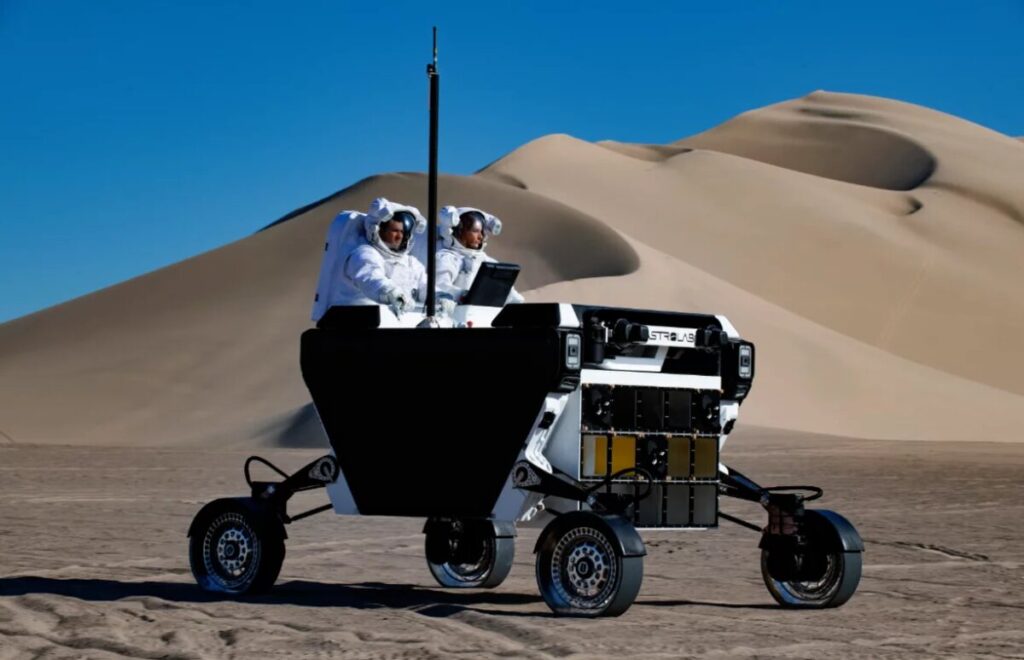Venturi obtains NASA funding to develop lunar vehicle

Planned for use in NASA’s Artemis space programme, the vehicle will be called Flex.
Exactly one year ago, Venturi joined forces with SpaceX to send a new robot to the moon. Today, the Monegasque group is again working on a space project, this time with NASA.
The American company Astrolab, a Venturi partner, won a highly lucrative financial contract from NASA to develop a lunar exploration vehicle. The contract is estimated to be worth 1.9 billion dollars.
Three metres wide and six metres long, it is designed to explore a larger part of the lunar surface on future missions. The lunar rover’s wheels and batteries are designed and manufactured by Venturi in Switzerland and Monaco. This event represents a significant step up in the Monegasque group’s growth.
Weighing over two tonnes, the vehicle is ideally suited for carrying out scientific experiments that have not yet been attempted on the Moon. It will be able to carry two astronauts in their spacesuits, house a robotic arm if required, and handle goods logistics on the Moon.
Gildo Pastor, Chairman of the Venturi Group, expressed his pride at this historic breakthrough:“After 20 years of innovation in terrestrial electric vehicles, we are embarking on an adventure that will go down in history: putting man back on the Moon! When I see the rover, fitted with our wheels and batteries, working up there, my wildest dream will have come true.”
Jaret Matthews, founder and CEO of Astrolab, shares his enthusiasm: “Astrolab is honoured that its FLEX rover was chosen by NASA to be part of the Artemis programme. Together with our commercial partners and our strategic partner Venturi, we are determined to provide NASA with an essential tool for establishing a long-term human presence on the Moon.”
The vehicle will be sent on the next flight, scheduled for 2026 through SpaceX.









